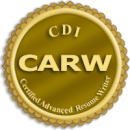
Imagine a commute that only took 5 - maybe 10 minutes, if you stopped at the Keurig to make a cup of coffee before heading into your home office? It is estimated that 70% of professionals across the globe work remotely at least one day a week. Some are full time!
Some companies will absolutely not let you work from home, and there are some industries and occupations that do no enable you work from home to include law enforcement, health care, emergency responders, etc.
What are some of the benefits of remote work?
- There are even co-working spaces that enable you to somewhat socialize, while still working.
- If you are not feeling your best, or need to care for a family member, you can still get work done.
- Scheduling - domestic chores, contractor appointments, and family support burdens may be eased by a shorter commute.
- Family time may increase due to a shortened commute.
- You may be able to travel - see the world - while working and earning a paycheck.
Tips For Working Remotely
Tip 1: Review your performance - are you a stellar employee; punctual, attentive, and do you meet deadlines? These employee traits all build trust that enable your boss to feel comfortable allowing you to work from home.
Tip 2: Understand your motivation to work remotely (in professional terms), so you can articulate the ‘value add’ for the company - not just for you - to your boss. You can provide information pertaining to the increase in quality of life that the flexibility will provide (able to care for aging parent(s), better balance for dual-income family) - just keep it brief. Make sure you are ready for the change of being away from your co-workers; needing to produce quality work while you are possibly traveling, and possible feelings of being left out of ‘emergency meetings’ and internal politics (gossip).
Tip 3: Make a plan of action to present to your boss - a schedule of days and activities. Detail how you will participate in meetings, urgent assignments, and communicating / corresponding with team members. Determine and define your work hours. Outline your responses to negative comments regarding loss of focus, productivity decline, or lack of team synergy that your boss may ask.
Tip 4: Talk to your boss. You’ve researched your options, made a plan, and committed to the concept of working remotely. Make a list of talking points centered around how you working remotely will benefit the company (not you) and how you will meet the demands of your job. Showcase your past performance, tenure, ability to produce, and loyalty. It is cheaper to keep you than to replace you - it’s just a matter of capitalizing on your value. If your boss is on the fence, you can suggest a trial run that demonstrates how things will look (and change) when you are working remotely.
Tip 5: What if the answer is ‘no’. Consider this beforehand. If you are not able to work remotely will this be a deal breaker for you? How will it affect your motivation for your job - should you consider looking elsewhere? Make sure that you are ready for a negative response, and that you have already determined your next steps - even if they include going back to your office.
Consider also, that the answer is ALWAYS ‘no’ until you ask.
Kara Varner of A Platinum Resume is a professional resume writer, located in Colorado Springs, Colorado. She specializes in professional resumes for executives, military to civilian, federal, and recent graduate resumes.
For more information and tips to working remotely contact Kara at:
A Platinum Resume
Colorado Springs, CO
Ph. 719-339-2659
https://www.aplatinumresume.com/
 RSS Feed
RSS Feed















